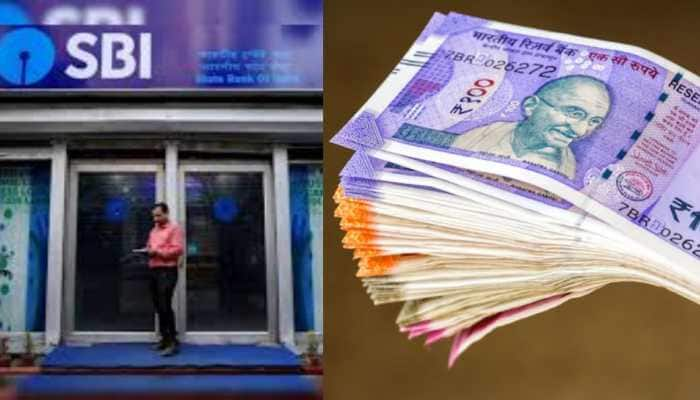Iran elections: Why Hassan Rouhani may be good news for the West
It remains to be seen whether Hassan Rouhani would be able to pull Iran out of its solitary isolation.
Trending Photos
)
With reformist cleric Hassan Rouhani all set to take over the reins from the high octane Mahmoud Ahmadinejad, there is a sliver of a chance that Iran will be a less contentious site on the world map and hopefully not a potential nuclear flashpoint.
The possibility of such a scenario brings relief to a lot of Middle East watchers who had been bracing for a break out of an Iran-Israel conflict. Thankfully, things held under Ahmadinejad even though they reached the brink several times. Iranians have now voted for a moderate man to be at the helm of affairs.
Ahmadinejad himself was ineligible as he has already served two terms and is disallowed to run for a third as per Iranian rules.
The job as the executive head undoubtedly will not be an easy one – the new President needs to deliver good governance to a desperate population, fix the economy, assuage fears of the West, particularly the United States, over its nuclear programme and improve ties with its volatile neighbours. And he must do this while keeping the spiritual lead Ayatollah Ali Khamenei in good humour.
The last factor being the all crucial one in a country where even the candidates’ eligibility to stand for elections is vetted by the spiritual leader and a body controlled by him. In Iran, there is a practice wherein the Guardian Council - a 12-member body of clerics and lawyers working under the supreme leader – choose the candidates. Hundreds are eliminated in the process, this time the last batch was of 12 which was further narrowed to eight and subsequently 6 after some candidates voluntarily dropped out.
The procedure of exclusion is a critical one and several big names have been a victim of it. This time Ahmadinejad’s political ally Esfandiar Rahim Mashaei was excluded. Previously, former president Akbar Hashemi Rafsanjani’s fate had been sealed by hardliners, possibly because of his highly moderate image and track record. His disqualification had left several disappointed and wondering whether they should participate in the polls. Rafsanjani in turn had then lent moral support to Rouhani.
Of those who made it to the final round, Saeed Jalili – Iran’s chief nuclear negotiator - was the candidate closest to the Khamenei camp. However it is clear that he does not enjoy the same popularity with the populace.
Also standing were the radical Mohsen Rezai, who has been on the most wanted list of Interpol over bombing of a Jewish centre in Argentina in 1994, Tehran’s mayor Mohammad Baqer Qalibaf and Khamenei aide Ali Akbar Velayati.
If nothing else, the profiles of most candidates give us a bird’s view of how Iran has changed. Its increasingly hardline position had in 2009 led to what was possibly the first social media fuelled protest that came be to be known as the Green Movement, a year ahead of the Arab Spring.
At that time, the establishment had cracked down on the protestors killing among others, Neda Agha Soltan, whose death was captured on amateur camera and whose video went viral evoking more anger and dissent.
Despite the unrest, the clerical establishment had stamped its approval on Ahmadinejad`s re-election and second term. And since then there has been a relentless crackdown on free media.
As things stand today, clearly, Rouhani has his task cut out. Iran which slid significantly under Ahmadinejad is in dire need of resuscitation. Its economy has been badly hit and financial condition has deteriorated because of the several sanctions imposed by the US and the UN.
In a significant admission, Rouhani has said that he would try and restore diplomatic ties with the United States which had been severed in 1979 after the seizure of American embassy in Tehran by Islamist students.
He has in the same breath also promised “constructive interaction with West”. Western countries are hence cautiously optimistic and have expressed hope that the new leader will course correct.
It is worthy to note that Rouhani has robust experience of handling the most difficult of issues being faced by the Islamic republic. He had been the chief nuclear negotiator of the country till 2003, a year after Iran’s nuclear program came to light. Later, he had to quit due to a showdown with President Ahmadinejad on handling of affairs, and had also put in his papers as the head of the national security council.
However, despite his liberal image Rouhani has carefully left out saying that he will either curtail or roll back the nuke programme and instead has chosen instead to focus on less prickly and more positive agenda. In a balancing act, Iran has also announced sending troops to help Assad’s regime in Syria.
While forwarding a moderate face to the world and extending a hand of friendship to the West, Rouhani importantly also enjoys the confidence of Khamenei to some extent, even if he was not his favourite candidate to stand for President. In earlier years, Hassan had been a vocal opponent of the westernised Shah of Iran, who was overthrown in the Iran revolution, and this had brought him in favour of the then spiritual leader.
In the government that had come to power then, the young Hassan Rouhani had helped reorganise the military and served in Parliament overseeing state media.
So the new Iran President is a mix of both worlds – he has had training with the old guard but shares his vision with the young who want a more open culture and have a progressive outlook of their nation.
In that sense, he may be the best man for the job. It remains to be seen though whether he would be able to deliver and pull Iran out of its solitary isolation.
Stay informed on all the latest news, real-time breaking news updates, and follow all the important headlines in india news and world News on Zee News.
Advertisement
Live Tv
Advertisement







)
)
)
)
)
)
)
)
)
)
